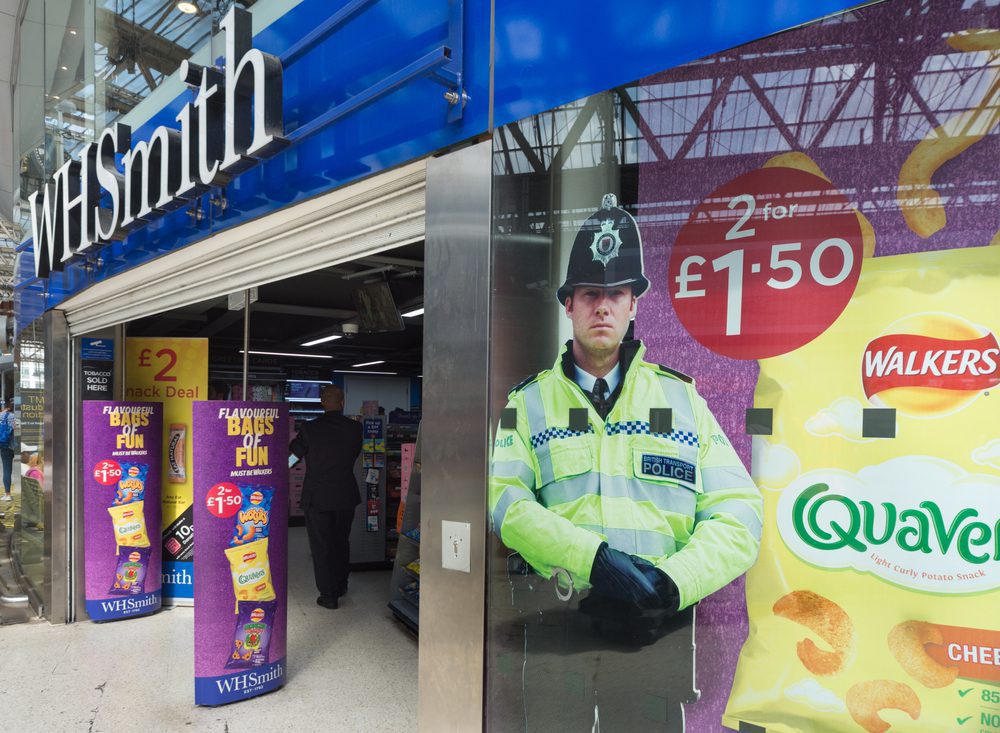
At Waterloo rail station, a cardboard cutout of a policeman stands behind the window of WH Smith as a deterrent to crime.
Neil Bussey / Shutterstock.com
Most Britons will have seen a life-size cutout of a police officer ‘standing’ in a shop window (as pictured above). Far fewer, especially those below the age of 30, are likely to have seen the real thing. Despite evidence that it works, proper preventative police foot patrols have effectively been put to bed.
The effects of this on businesses, for example, are clear; criminals now feel as though they have a “licence to shoplift.” So rather than wait for police to respond to crime once it has already been committed, those who can afford it are turning to private forces.
One such force this month highlighted the common uselessness of official law and order channels when it caught a notorious shoplifter who holds just shy of 100 convictions and made a citizen’s arrest. Detectives from the private TM Eyes group even walked the woman into a local police station, but officers still failed to arrest her—even though she was accused of failing to appear at a court hearing. They were told no officers were able to deal with the case at that time, even though they saw “numerous officers walking in and out with their food.”
TM Eye founder David McKelvey, who is himself a former Scotland Yard detective chief inspector, is quoted in The Daily Telegraph:
Nearly two hours later, I personally spoke on the telephone to a PC who was covering the front desk. He was likewise too ‘busy’ to arrest this wanted suspect, who simply needed to be taken into the custody suite and a short statement made. He stated that no supervisor was available.
The decision was therefore made to release the suspect back onto the streets. No doubt that shoplifter will be back on the streets tonight or tomorrow, stealing.
A Metropolitan Police statement responding to this incident inadvertently gave further weight to the argument for such private forces, noting that “it is not realistic for the Met to respond to every case of shoplifting” (emphasis added). The Met acts as though its job is simply to appear at crime scenes after the fact, rather than to form a preventative presence on the streets.
Talking more broadly about the role of his group, McKelvey told MailOnline:
All we’re doing is old-fashioned beat policing, community policing, supported by very experienced, proactive detectives. It’s nothing new; it’s not rocket science. It’s what [the] police used to do. (Emphasis added)
We have residential beats and business beats, so we’re very tied in with our communities. Residents’ concerns are still the same things, like burglaries, street robberies, and pick-pocketing. … We focus on offences that are not normally dealt with by the police or weren’t a priority.
He added that “when something happens in the areas we patrol the majority of times people don’t phone the police now—they call us.”
